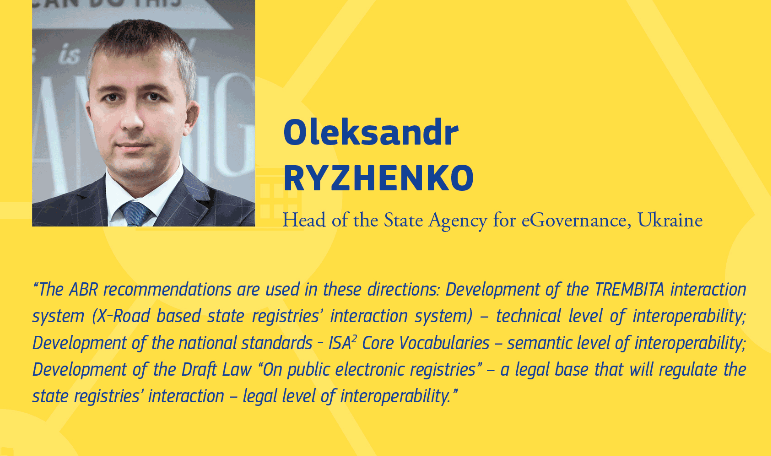
Improving national and cross-border access to government data

2016.28 Access to Base Registries
- You are a base registry representative and you receive requests to open up your registry to cross-sector or cross-border public services and/or other registries. To respond to these requests, you want to gain insights into how to develop/improve national and cross-border interoperability features of your base registry.
- You are working for a public service and are in charge of liaising with national and cross-border base registries to develop new add-on services. You advise your public service organisation and the identified cross-border registries on how to become interoperable and/or how to gain interoperability maturity.
What is this action about?
Base registries, important components of European public services, are a trusted and authoritative source of information. They provide basic information on data items such as people, companies, vehicles, licences, buildings, locations and roads.
As the information needed for operating European public services is owned and managed at the EU Member State level (or within an EU country), this action looks at whether and how the opening up of the registries – with the appropriate security and privacy measures – can help foster the establishment of European public services.
For such cooperation to take place, the interfaces between the registers need to be defined, published and harmonised at legal, organisational, semantic and technical levels.
This action also sets out to assess the needs for a Framework for Base Registry Access, based on best practices and all the different activities associated with master data management.
What are the objectives?
Providing both national and cross-border access to the base registries of data held by EU countries, by defining a common framework that makes this possible.
What are the benefits?
- more efficient and effective access to information across borders when establishing European public services
- quicker and easier European public service establishment
- reduced administrative burdens
What has been achieved so far?
- An overview of reusable solutions from EU countries in order to facilitate the interconnection and access to base registries. Reusing solutions could make the development of base registries and interconnecting infrastructures faster and more cost-efficient.
- A detailed analysis of the state-of-affairs in the all EU countries, as well as the EFTA countries. The analysis has been carried out around four levels of the new European Interoperability Framework (EIF), i.e. legal, organisational, semantic and technical levels. The document also covered both the individual base registry level, as well as the interconnection level.
- The exchange and promotion of best practices among EU countries that aim at speeding up the development and overcoming problems that are being faced by developers.
- Guidelines have been developed with the aim to inspire public administrations to make their authentic sources of data more accessible and efficiently connected. The guidelines include recommendations and how-to on all interoperability aspects concerning base registries.
- The action has come up with several solutions to promote the exchange of best practices and the reuse of solutions. A catalogue of solutions exists on JoinUp, which describes many solutions developed by the European Commission and the Member States for base registries.
- The action has developed some reusable solutions for base registry access and interconnection. One such solution is the reusable search engine which has been developed in the context of BRIS, but can be reused by other projects.
What are the next steps?
- Developing reusable solutions to help with base registry development.
- Developing a Base Registry Framework is being developed.

